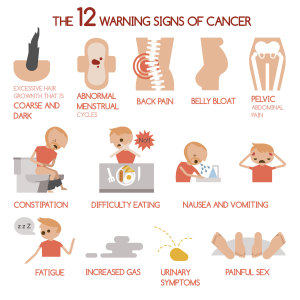
Rectal cancer is a very serious disease that requires immediate attention. It's important to be able to tell when you've been diagnosed with rectal cancer because it can spread rapidly, causing death. This article will cover some basic information about rectal cancer so that you can better understand this type of cancer.
Colon cancer often starts somewhere inside the colon, which can be about a meter and a half in length and can absorb water from your stool, leading to bloating and less likelihood of going to the toilet. Rectal cancer begins in the rectum, in the lower 12 inches of the colon. When this cancer spreads to the lower intestine, it becomes the most common type of colon cancer. If cancer is found on the rectal wall or the lining of the anus, it is often called prolapse or adenocarcinoma.
One of the most common symptoms of rectal cancer is bleeding, which occurs in small, irregular bursts. You may also feel pain in your rectum when you have a bowel movement. If you have any of these symptoms, you should see your doctor immediately to determine if you have rectal cancer.
When you have cancer of this type, it is extremely important to have an abdominal ultrasound scan because it is one of the best ways to determine if you have rectal cancer. This helps to examine the colon and small intestine. If there is swelling or changes in the walls of the colon, it could indicate rectal cancer. If you notice unusual bleeding in your underwear, it could indicate rectal cancer.
If you notice any of the warning signs above, it's important to see your doctor about rectal cancer. To make sure that you are completely safe and that the cancer has not spread, your doctor will do a laparoscopy. This is a special type of surgery that uses a thin, flexible instrument to carefully examine the lining of the anus.
Rectal cancers can be very hard to detect in its early stages, so it's crucial that if you have any of these symptoms that you visit your doctor right away. for rectal cancer. You can also undergo various tests at your doctor's office before you decide if you need to have surgery.
There are also a variety of symptoms that you can experience if you have rectal cancer, such as fatigue, nausea, vomiting, fever, extreme pain or a general lack of energy. Some of these symptoms may not always be present when you are experiencing them naturally. In many cases, the symptoms of rectal cancer will not be readily apparent to you, but if they are severe enough, then they may lead you to a doctor's office. Many people have experienced rectal cancer symptoms like these without ever realizing that they had it until the last minute.
Most of the time, if you have rectal cancer, then you can expect to see signs and symptoms of colon cancer as well. However, if you do experience any of these symptoms, it's important to see your doctor as soon as possible. Since colon cancer is often more complicated than rectal cancer, it's important that you have it checked out immediately.
When you first notice any signs and symptoms of rectal cancer, you should speak to your doctor immediately
Many doctors will be able to help you through this procedure, as it may be difficult to treat or cure if it is caught early. The sooner you catch rectal cancer, the better.
Although the symptoms of rectal cancer are not life-threatening, they are certainly uncomfortable. The pain can be unbearable and it may make you worry that something serious is wrong with you. However, it is not a serious condition and if left alone, it will disappear on its own. However, it's important to know that there is a strong possibility of it spreading to the bowel.
If you experience any symptoms of rectal cancer, the sooner you start treatment, the better. The sooner you get help, the faster your chances of completely eliminating the problem. For rectal cancer, it is important that you never take the problem for granted. If you do, you could find yourself struggling with much more serious problems.